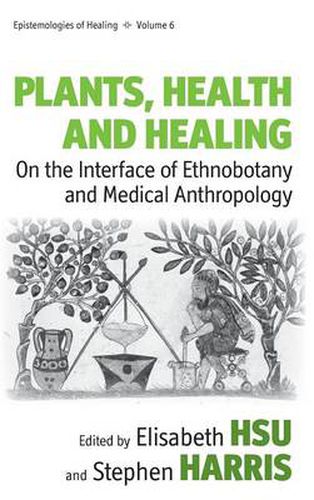Readings Newsletter
Become a Readings Member to make your shopping experience even easier.
Sign in or sign up for free!
You’re not far away from qualifying for FREE standard shipping within Australia
You’ve qualified for FREE standard shipping within Australia
The cart is loading…






Plants have cultural histories, as their applications change over time and with place. Some plant species have affected human cultures in profound ways, such as the stimulants tea and coffee from the Old World, or coca and quinine from South America. Even though medicinal plants have always attracted considerable attention, there is surprisingly little research on the interface of ethnobotany and medical anthropology. This volume, which brings together (ethno-)botanists, medical anthropologists and a clinician, makes an important contribution towards filling this gap. It emphasises that plant knowledge arises situationally as an intrinsic part of social relationships, that herbs need to be enticed if not seduced by the healers who work with them, that herbal remedies are cultural artefacts, and that bioprospecting and medicinal plant discovery can be viewed as the epitome of a long history of borrowing, stealing and exchanging plants.
$9.00 standard shipping within Australia
FREE standard shipping within Australia for orders over $100.00
Express & International shipping calculated at checkout
Plants have cultural histories, as their applications change over time and with place. Some plant species have affected human cultures in profound ways, such as the stimulants tea and coffee from the Old World, or coca and quinine from South America. Even though medicinal plants have always attracted considerable attention, there is surprisingly little research on the interface of ethnobotany and medical anthropology. This volume, which brings together (ethno-)botanists, medical anthropologists and a clinician, makes an important contribution towards filling this gap. It emphasises that plant knowledge arises situationally as an intrinsic part of social relationships, that herbs need to be enticed if not seduced by the healers who work with them, that herbal remedies are cultural artefacts, and that bioprospecting and medicinal plant discovery can be viewed as the epitome of a long history of borrowing, stealing and exchanging plants.